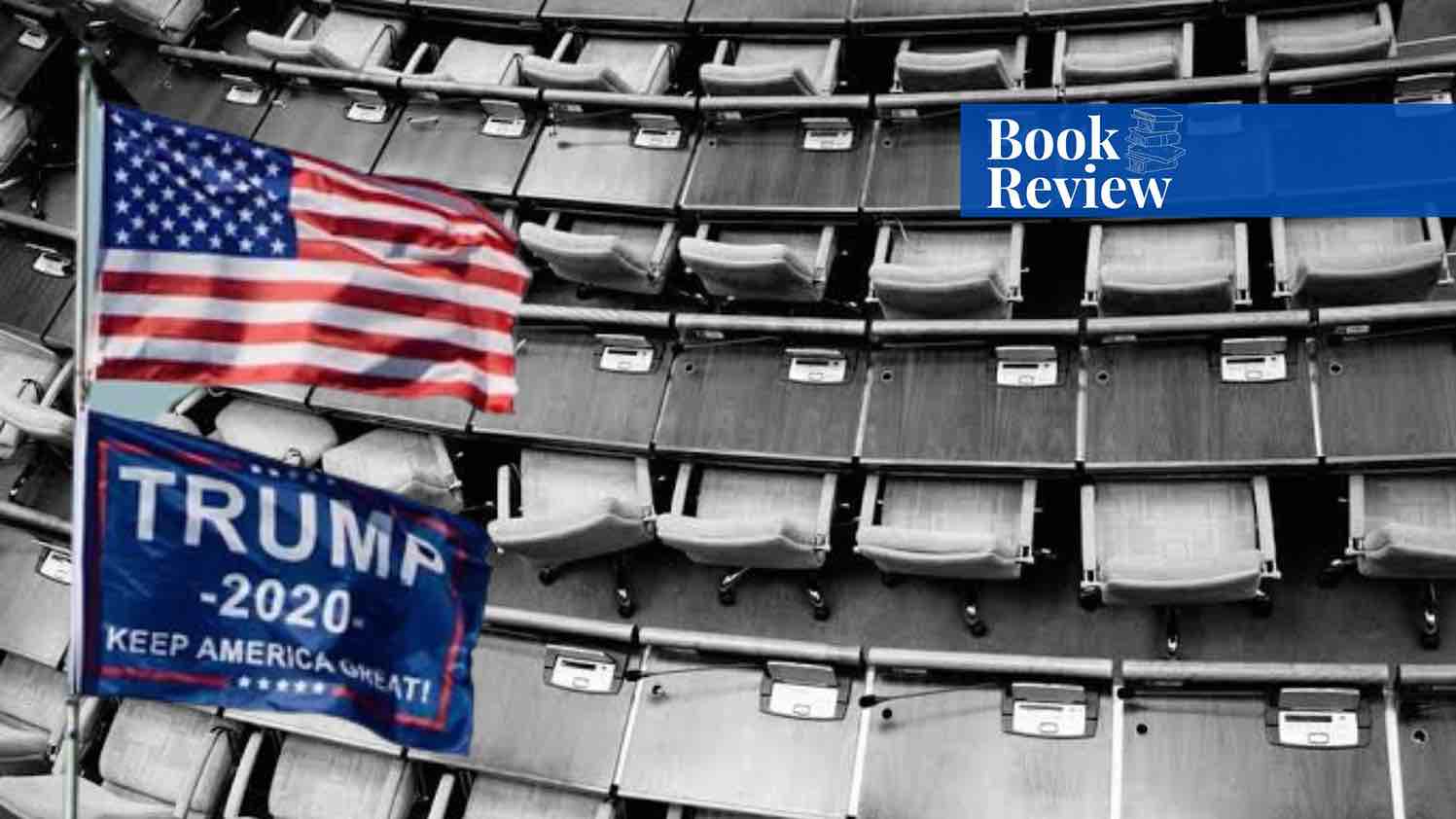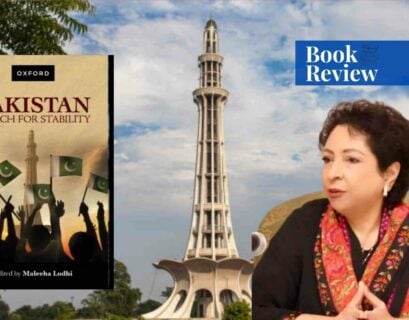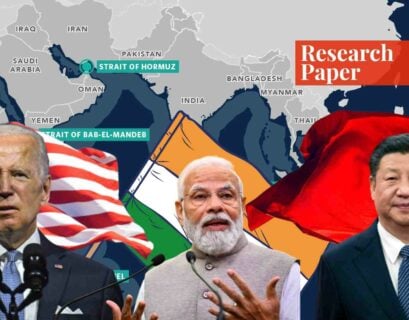Mr Syed Yasir Abbas Shah is an undergraduate student of English literature and linguistics at Gomal University, Dera Ismail Khan. He has an interest in democracy, international relations, and South Asian politics.
Introduction
Steven Levitsky and Daniel Ziblatt, professors at Havard University, co-authored the book, “How Democracies Die” in 2018. They begin the book with the idea that American democracy is not so fragile and weak as others across the globe. Nevertheless, at the same time, the authors confess that American democracy, too, is now receding. Politicians in America are targeting their opponents, intimidating the free press, and rejecting the results of the elections.
They quote examples from Hungary, Turkey, and Poland and how populist governments have endangered democratic institutions. Besides, Levitsky and Ziblatt argue that extremist forces have made their way through electoral processes in Austria, France, Germany, the Netherlands, and elsewhere in Europe.
Democracies Die
The authors highlight that democracies die in two ways: first, at the hands of men with guns; and second, at the hands of presidents or prime ministers who subvert the process that brings them to power. Quoting the example of the downfall of the Chilean democracy, they explain that the Chilean democracy gave in to a military coup that occurred in 1973.
In Chile, the then president, Salvador Allende, was relinquished and was killed in a 1973 military coup, headed by General Augusto Pinochet. This was how Chilean democracy died at the hands of men with guns. In the same fashion, the democracies of Argentina, Brazil, the Dominican Republic, Ghana, Greece, Guatemala, Nigeria, Pakistan, Peru, Thailand, Turkey, and Uruguay all died as well.
In the second case, the authors state how Venezuelan democracy died at the hands of political leaders and not the men with guns. In 1998, Venezuela’s populist politician, Hugo Chávez, rose to power to eradicate corruption from the country. Later, in 2003, Chavez took the first step towards an authoritative regime. In 2004, his government blacklisted those who sued them.
In 2006, the Chavista regime shut down a major media outlet, arrested opposition leaders, judges, and journalists on false allegations, and extended the presidential term to life. This was how, they argue, democracy in Venezuela expired at the hands of politicians.
Demagogues and Populists
The authors point out that although most countries conduct regular elections, democracies still die in those countries. Democracy’s corrosion is almost imperceptible. The reason behind the democratic downfall in these countries is the demagogues that emerge from within healthy democracies. As such, in the United States of America, Henry Ford, Huey Long, Joseph McCarthy, and George Wallace are some of the demagogues.
The elected autocrats subvert democracy by packing and weaponizing the courts and other neutral agencies, buying off the media, and rewriting the rules of politics. Levitsky and Ziblatt state that American democracy failed when Donald J. Trump, a demagogue, rose to power in 2016. The authors explain that America has two basic norms for checks and balances: mutual tolerance and forbearance.
These norms underpinned American democracy as the political leaders of both major parties in the country accepted each other as their legitimate rivals. Levitsky and Ziblatt propose that extreme polarisation can kill democracies and that the same has happened in America after Trump took office in 2016. The populists, they illustrate, are the anti-establishment politicians who, representing the voice of the common people, lock horns with corrupt and conspiratorial elites.
Populists deny the legitimacy of established political parties and claim that the existing system is not really a democratic one. Nevertheless, when populists win elections, they often assault democratic institutions. The authors quote an example from Latin America, where five out of fifteen elected presidents in Bolivia, Ecuador, Peru, and Venezuela between 1990 and 2012 were populist outsiders. These five were Alberto Fujimori, Hugo Chávez, Evo Morales, Lucio Gutiérrez, and Rafael Correa who ended up dismantling democratic institutions.
Linz’s Litmus Test
To identify authoritarianism in politicians who do not have clear anti-democratic objectives, the authors have incorporated into their book the Juan José Linz litmus test. Linz was born in Bonn, Germany, and taught as a professor at Yale. The litmus test highlights the role of politicians, showing how their behaviour can either reinforce democracy or put it at risk.
Levitsky and Ziblatt developed a set of four behavioural indicators that can disclose the undemocratic objectives of a politician. Any political leader who meets one of these signs is a cause of concern. First, anti-democratic politicians reject, in words or actions, democratic rules. They try to reject the constitution or express a willingness to breach it. Moreover, they also attempt to undermine the legitimacy of elections by refusing to accept the electoral results.
Second, undemocratic politicians deny the legitimacy of their rival politicians. They baselessly suggest that their rivals are foreign agents and that they are secretly in contact with foreign governments. Third, undemocratic politicians tolerate or encourage violence and anarchic situations in the country. They have latent ties to armed groups, paramilitary forces, militias, and guerrillas.
Fourth, undemocratic politicians are inclined towards curtailing the civil liberties of opponents, including the media. They threaten to take legal or other punitive actions against their rival parties, civil society or the media.
Democracy’s Gatekeeping
The authors present an easy way to prevent authoritarians from reaching public offices in a democratic system. They argue that successful gatekeeping requires that mainstream political parties isolate and defeat extremist forces. They explain several ways to keep authoritarian politicians out of power. First, a pro-democratic party can keep potential authoritarians off party ballots during elections.
Second, parties can eliminate extremists from the grass-root level. Third, pro-democratic parties can avoid all alliances with anti-democratic parties and candidates. Fourth, parties can act to systematically isolate, rather than legitimize, extremists. This requires that politicians avoid acts that help “normalize” or provide public support for authoritarian figures.
Finally, whenever extremists emerge as serious electoral contenders, mainstream political parties must forge a united front to defeat them. Levitsky and Ziblatt say that united democratic fronts can prevent extremists from winning elections, which can mean saving a democracy. The authors praise the United States’ impressive record of gatekeeping, claiming that both Democrats and Republicans have dealt harshly with extremists, some of whom had had widespread public support.
Donald J. Trump
The authors say, unlike other presidential candidates, except a few throughout American history, Trump’s rise to the status of a presidential contender was quite different. They said that Trump was not a long-term Republican and that he did not possess any political experience. Furthermore, they argued that Republican gatekeeping could not prevent him from running for president, despite the fact that his extremist views portrayed him as undemocratic.
They state that party gatekeeping failed at three key points: the invisible primary, the primaries themselves, and the general election. Not only was he an inexperienced outsider but also a demagogue and extremist whose views on immigrants and Muslims, his inclination towards violations of basic norms of civility, and his praise for Vladimir Putin created uneasiness among the media and political establishment.
Even before taking office, Trump’s behaviour reflected all four measures of the Linz litmus test for autocrats. The first sign, the authors describe, was Trump’s weak commitment to democratic norms. He questioned the legitimacy of the electoral process and suggested that he might not accept the results of the 2016 election. The second sign of the litmus test was his denial of the legitimacy of his opponents. He challenged the legitimacy of Barack Obama’s presidency by suggesting that he was born in Kenya and that he was a Muslim.
The third criterion is his tolerance or encouragement of violence. During his election campaign, he not only tolerated violence but also incited his supporters to commit physical violence. In August 2016, Trump issued an endorsement of violence against Hillary Clinton. The fourth sign is the readiness to circumvent the civil liberties of his rivals. He threatened to punish the unfriendly media and declared that Hillary Clinton be imprisoned.
Conclusion
In the concluding chapter of “How Democracies Die,” the authors put forth viable solutions to rescue democracy. The two norms on which American democracy relies are mutual tolerance and institutional forbearance. These norms direct how politicians should act in order for institutions to function. Moreover, they state that a coalition of dissimilar or opposing groups is also a prerequisite for democracy’s survival.
They argue that coalitions are formed not only among friends but also between adversaries. Furthermore, they explain that an effective coalition in American democracy requires alliances with businesses, religious leaders, and Republicans. To end polarisation in American democracy, the authors argue that stakeholders should work on two underlying forces: racial and religious realignment and growing economic inequality.
In the end, they say the democracy of any country depends upon its citizens, and America is no exception. They argue that no single politician or political party can rescue democracy. Rather, it is a shared enterprise, and its fate depends on all of us. “How Democracies Die” is a thorough study of several democracies and encapsulates all the components that pose a threat to healthy democracies across the world. It also gives a feasible solution to rescue a deteriorating democracy.
If you want to submit your articles, research papers, and book reviews, please check the Submissions page.
The views and opinions expressed in this article/paper are the author’s own and do not necessarily reflect the editorial position of Paradigm Shift.



















